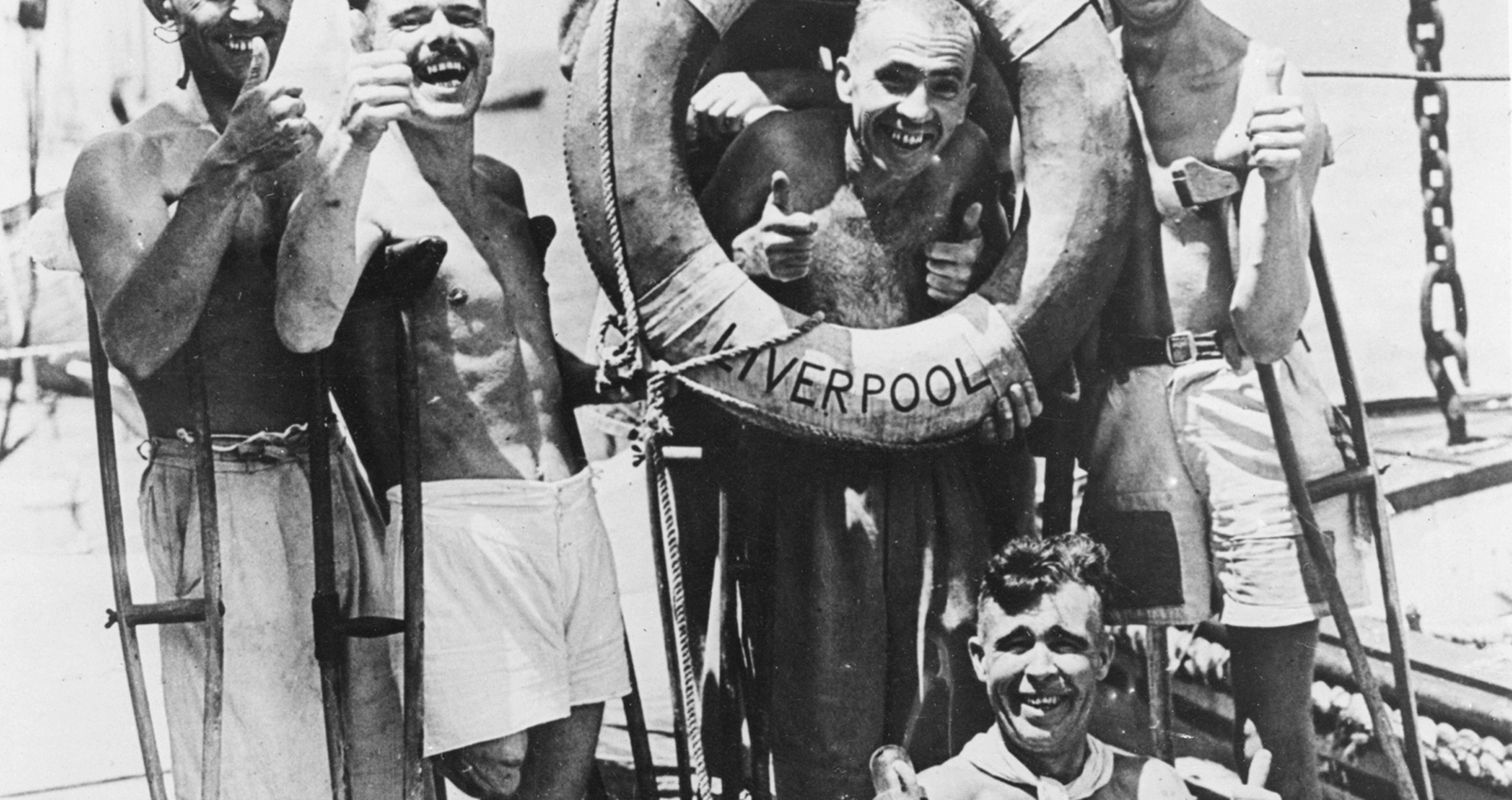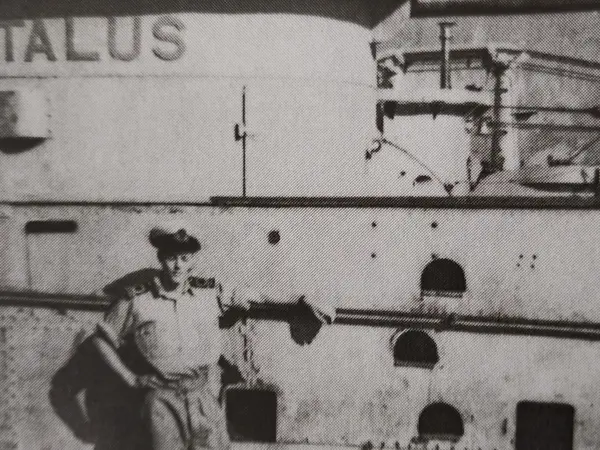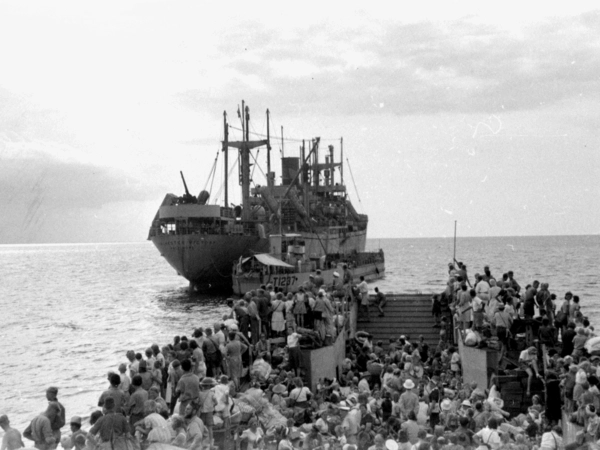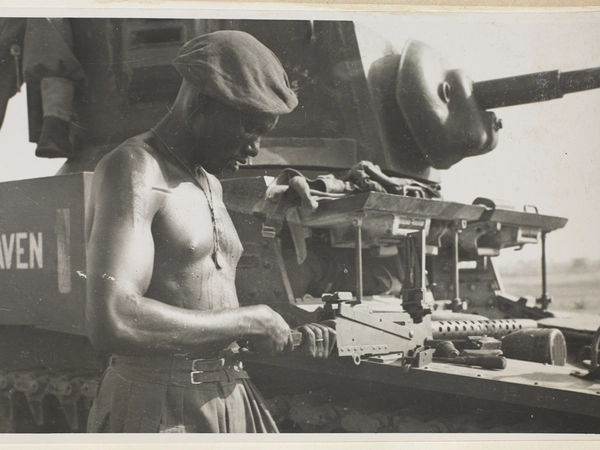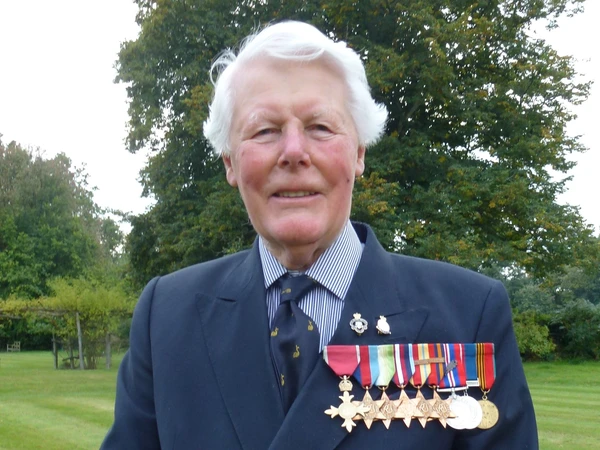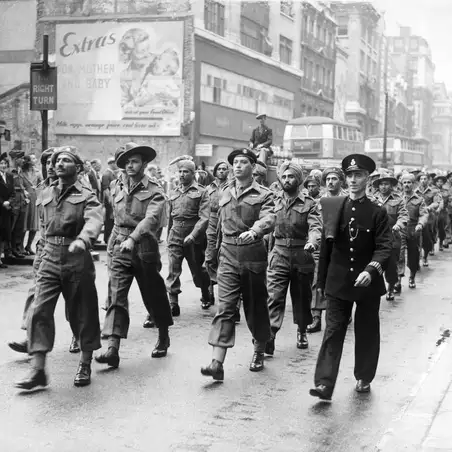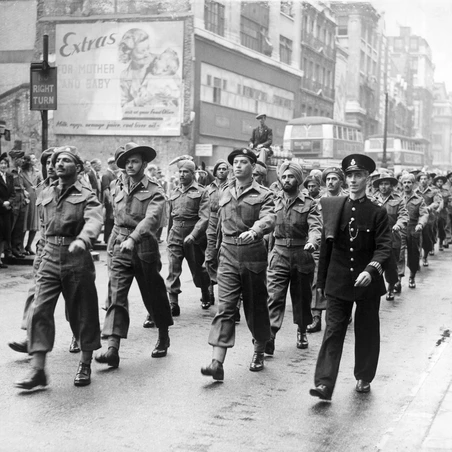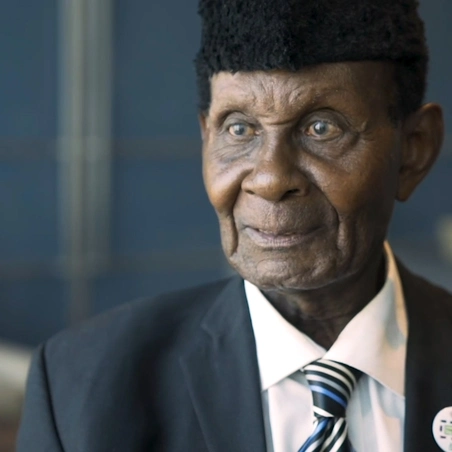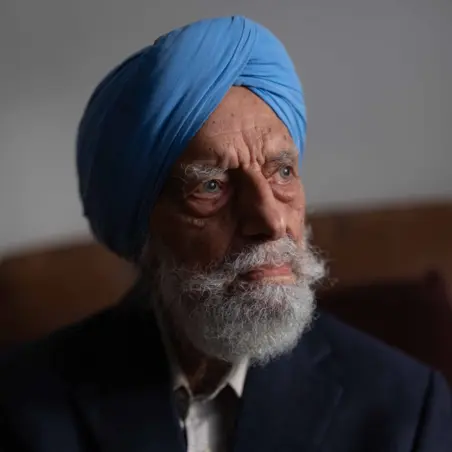Michael Tibbs, 98, joined the Royal Navy at the age of 18 after the outbreak of the Second World War, following in the footsteps of his father who was a Naval Chaplain.
“My father was in the Navy, so it was an obvious choice. I volunteered and I joined the Navy on 23 November 1940.”
On a submarine
“We did three patrols down the Malacca Strait, across the Indian Ocean and down this funnel between Malaya (Malaysia) and Sumatra. We did a patrol for about three weeks down there and then back again.
“Our object was to stop the Japanese from replenishing their army in Burma by sea, which we did really successfully.”
“Just as we left the first time, we saw a puff of smoke and chased after it and found that it was a small convoy. We reported that we were chasing it and we were told it was almost undoubtedly going to the Andaman Islands, Port Blair.
“The escort vessel named Smokey Joe let out a puff of smoke, so we knew they were there. Eventually, we sank the ship and that was the first one we had.”
Life at sea
“In the Malacca Strait, we had to dive all day and resurface at night to recharge the batteries.
“But sometimes if we were being depth-charged, and there were nasty people prowling around up top, we couldn’t surface at night. Once we were down for nearly 48 hours.
“Eventually we were able to surface and I always remember, when you surfaced the pressure in the boat in those days built up so much that the Captain used to climb up the ladder and get ready to open the hatch to go out on the bridge.
“The signalman had to hold him onto the ladder because the pressure was so much if he hadn’t it would have blown the Captain up off the side. After that, there was also the lovely smell of the diesel starting and of course, we were soaking wet with sweat and prickly heat. It wasn’t a great existence really.”
The longest days at sea
“We did patrols two there, which doesn’t sound very long, but actually they were the longest patrols of the war – 52 days and 55 days.
“It took us nearly three weeks to get from our base in Freemantle, across the Indian Ocean through the Lombok Strait, up the Java Sea, Karimata Strait and then we were up the coast of Malaya.”
After 18 months service in the Far East Michael returned home to the UK.
“On our way home, we learnt in port side there was a buzz going on about peace in Europe. So, sure enough, we discovered that VE Day was the day after we left port side on the way home.”
Relived that war in Europe was over Michael and the crew celebrated and had a service onboard HMS Tantalus on the way home.
“We dived to 60ft, quite alone, and had our service down there. The Captain made a little speech, he said that we were very grateful to be going home and that our families would be very grateful that they were no longer threatened by these V1 and V2 bombs, and that we would remember our friends out in the Far East still fighting"
VJ Day
“By the time VJ Day came along, I was actually First Leuitenant of a small submarine up in the Western Isles - the Isle of Mull.
“It sounds rather stupid, but I was hoping that we would transfer some of our crew into a slightly larger submarine and get back over to the Far East. So initially I was a bit disappointed. But that was it.”
In 1946 Michael was discharged from service and went on to study Geography at Oxford University. He later became a District Commissioner in Sudan for 6 years before coming back to the UK where he was the Secretary of Royal College of Physicians for 18 years.
Michael was happily married to his wife Anne for 68 years before she sadly passed away in 2019. He now lives with one of his sons in Sussex and has seven grandchildren and two great-grandchildren.
He has also written a book, Hello Lad Come to Join the Navy, about his experiences at sea.
To mark the 75th Anniversary of VJ Day Michael will be attending the Legion’s national commemoration at the National Memorial Arboretum.
“I am very pleased and honoured to be asked to attend the commemoration in the NMA and looking forward to it very much.

